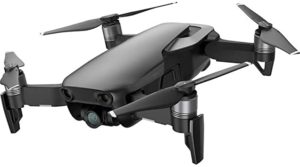Today, the world’s largest drone manufacturer, DJI responds to Department of the Interior memo recommending that department heads purchase U.S.-manufactured drones from the “Blue sUAS” list.
The Department of Interior (DOI) has a long history with DJI, who worked with them closely on building their initial fleet. As the department responsible for the management of public lands, drones have tremendous value for the DOI: they were among the first government departments to adopt drone technology. The DOI used their initial fleet of nearly 1,000 drones – all of which contained Chinese-manufactured parts, and many of them manufactured by DJI – to perform a wide variety of functions, such as tracking wildlife migrations and conservation projects.
As a result of the trade war with China and concerns over telecom giant Huwei, some U.S. lawmakers raised concerns last year that Chinese-manufactured drone platforms represented a security risk. DJI then collaborated with the DOI to produce a platform which addressed any potential security issues, DJI’s “Government Edition.” The DOI approved the platform, and subsequently DJI announced that it would shift some manufacturing to the U.S.
These efforts were nullified, however, when the DOI decided to down it’s entire fleet in January of 2020, in response to building political pressure brought to a head by a November 2019 memo from the Department of Justice, recommending that Chinese drone platforms be banned for government use.
The rhetoric on U.S.-manufactured drone platforms has shifted slightly over the last few months: from an emphasis on security risks to a new focus on domestic manufacturing capabilities. When the Department of Defense provided U.S.-based drone company Skydio and other U.S. drone companies with CARES Act funding through the Defense Production Act, the shift was made evident. The Defense Production Act is meant to protect U.S. manufacturing capabilities in key sectors: areas such as shipbuilding or aviation. Providing that funding for drone companies was a statement that drone platforms are now considered important to the nation’s defense – and so is protecting the domestic manufacturing base.
DJI’s position has always been that they are ready to meet any clear published standards for security, but that regulations or purchasing requirements based solely on “country of origin” deny international manufacturers fair market competition and risk limiting innovation in the field. Now, as DJI responds to the DOI memo, they company says that government department is finally admitting that security concerns were not the primary reason for ceasing to use DJI drones:
“The new DOI guidance finally acknowledges that the grounding of its drone fleet was never about national security, but rather thinly-veiled economic protectionism. Five manufacturers were just handed an unfair advantage in the marketplace, as they can build their drones with Chinese parts while other companies cannot. The Blue Drone companies also charge three to five times more than a comparable DJI platform, meaning U.S. taxpayers are footing the bill for expensive military-grade drone technology from defense contractors for non-military activity such as prescribed burns, wildlife conservation and geological surveying.”

Miriam McNabb is the Editor-in-Chief of DRONELIFE and CEO of JobForDrones, a professional drone services marketplace, and a fascinated observer of the emerging drone industry and the regulatory environment for drones. Miriam has penned over 3,000 articles focused on the commercial drone space and is an international speaker and recognized figure in the industry. Miriam has a degree from the University of Chicago and over 20 years of experience in high tech sales and marketing for new technologies.
For drone industry consulting or writing, Email Miriam.
TWITTER:@spaldingbarker
Subscribe to DroneLife here.
